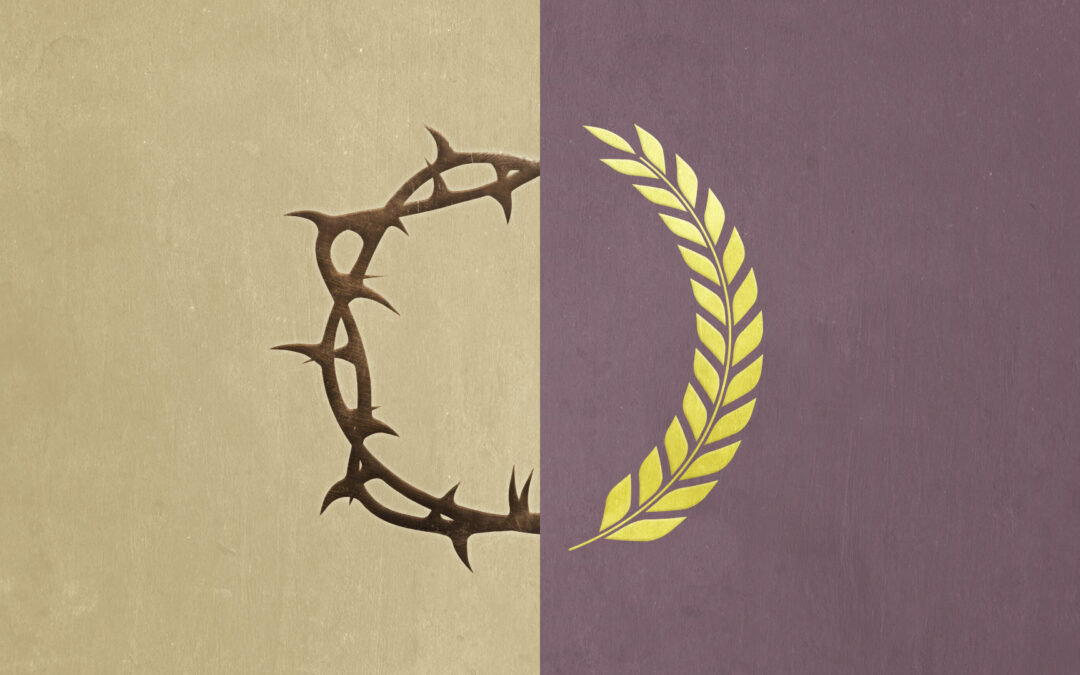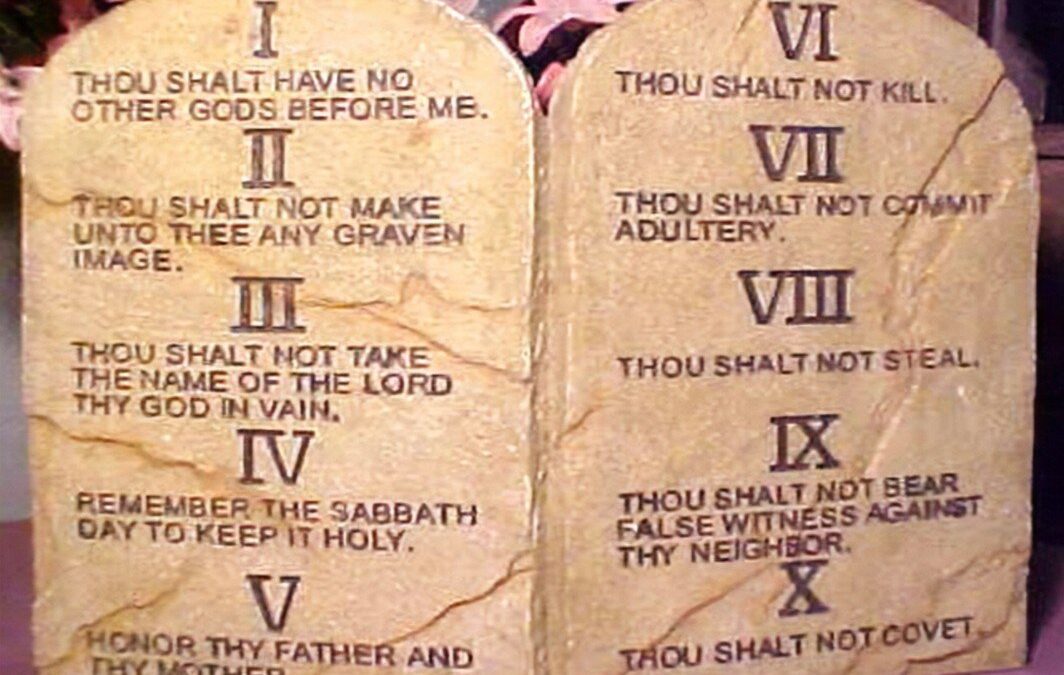
Believe It or Not, God Wants to Bless Us
Most of my life I didn’t really believe this. I would never have said that explicitly, but somewhere inside I think I was always waiting for the other shoe to drop, something bad to happen. We all know life can be really hard, but “life” is not sovereign, God is. We all, however, tend to live by circumstances and not by faith or trust in God (faith and trust are synonymous). We in effect judge the character of God by our circumstances. How many people rejected or leave Christianity because their lives are a horrible disappointment, and they blame God? A lot. Loss and grief have created many a heathen. Yet from Scripture we see that this has always been so for God’s people. They, like we, are always confused and wondering what God’s up to. Living by sight and not trust is nothing new, and God doesn’t seem the least bit embarrassed telling us this is par for the course; get used to it.
Before I get to justifying my assertion of God’s intention to bless us, one of the most powerful passages in Scripture of trusting God in spite of the circumstances comes from the last verses of Habakkuk. In the face of impending judgment things are looking really bad to the prophet, but he utters these amazing words:
17 Though the fig tree does not bud
and there are no grapes on the vines,
though the olive crop fails
and the fields produce no food,
though there are no sheep in the pen
and no cattle in the stalls,
18 yet I will rejoice in the Lord,
I will be joyful in God my Savior.19 The Sovereign Lord is my strength;
he makes my feet like the feet of a deer,
he enables me to tread on the heights.
In the ancient world it could not get any worse, but he decided to trust the Lord anyway. That’s always the bottom line, isn’t it? Are we going to trust God, or our lyin’ eyes. Knowing and believing God’s intention is always blessing is critical if we’re going to resist the temptation to live by circumstances. The temptation itself comes from the pit of hell. It’s the same one Satan used to seduce Eve to distrust the goodness and love of God by implying He’s a liar. Because this is the fundamental temptation of human existence, to trust God or not, we need to be rooted in what God actually says about the life He’s granted us in Christ. To do this we need to go back to the very beginning and build from there.
In the face of man’s rebellion, God pronounced judgment on Adam and Eve, but provided a solution by clothing them and covering their nakedness and shame, promising a deliverer, a Savior. He promised them the woman’s offspring would crush the serpent’s head, and the serpent would strike this offspring’s heel. In other words, this was going to be a nasty business—ergo life! Conflict is at the heart of existence, and the biggest mistake people make is thinking it shouldn’t be, that life should be smooth sailing or . . . . something is wrong! No there isn’t. Our confidence and hope is that God uses the friction of life, the challenges and unpleasantness of it for our good and His glory. Trust says He loves us and everything that happens in life, good, bad, and in between, is for those ends. Without trust, we are slaves of circumstance.
Believing this, I am convinced God’s purpose for our lives is blessing, our happiness, our flourishing, our fulfillment, our joy. He doesn’t just want us to survive but to thrive. Does that mean there will not be struggle and real suffering? Of course not. If what God calls us to is really hard, serious suffering, we live forever so it’s all temporary. As Paul says, himself no stranger to suffering, “For our light and momentary troubles are achieving for us an eternal glory that far outweighs them all” (2 Cor. 4:17). The point of suffering in the Christian life is that it has a purpose; it isn’t just to crush us, but to crush us and remake us in the image of His Son. And so Paul also tells us, our “labor in the Lord is not in vain” (I Cor. 15:58).
As for the big picture of blessing, some time ago I came across a lecture by Dr. Mark Futato of Reformed Theological Seminary overviewing Genesis. For him the key text of the book comes from Chapter 12:
The Lord had said to Abram, “Go from your country, your people and your father’s household to the land I will show you.
2 “I will make you into a great nation,
and I will bless you;
I will make your name great,
and you will be a blessing.
3 I will bless those who bless you,
and whoever curses you I will curse;
and all peoples on earth
will be blessed through you.”
He argues the key theme from these verses is “blessing for the nations.” God is specifically establishing his covenant with Abram so through him and his offspring the nations will be blessed. If Dr. Futato were to reduce Genesis to one word it would be blessing which is used over 65 times. What struck me was his definition of blessing: empowerment. When God blesses people He empowers them to do a wide variety of things, as he puts it, “God empowers people to flourish.” I love that! Secularists paint Christianity as repressive and intolerant, but what it represses and doesn’t tolerate is sin! Sin destroys everything it touches and makes true flourishing impossible. It is by definition dis-empowering. Jumping forward two thousand years, Jesus says the same thing (John 10:10):
The thief comes only to steal and kill and destroy; I have come that they may have life, and have it abundantly.
From Genesis 3 on, God promised this blessing in spite of the damage of the Serpent’s strike. Jesus tells the obvious us in John 16:33, “In the world you will have tribulation. But take heart; I have overcome the world.” We know from God’s own words, from the very beginning the fallen world, i.e., Satan, has no chance—he gets crushed! That doesn’t sound ambiguous to me; it has the scent of victory. I’ve come to see God’s promise in the garden as the microcosm of all of history, and Jesus’ words reflect that. Jesus’ resurrection and ascension to reign at the right hand of God overcomes Adam’s sin in space and time, and fully at his return and the consummation of all things.
We see throughout Genesis and in God’s covenant promises to Abram that these blessings are to touch so many people they literally can’t be counted (sand of the seashore, stars in the sky, and dust of the earth). God is not miserly in spreading his blessings on earth! And because of His covenant promise immediately after the fall, we realize all of it is done in the face of a cosmic spiritual war to frustrate the devil’s plans. We, the fallen myopic sinners we are, think the devil is there to frustrate God’s plans. He can’t do that! He’s a puppet on string in this unfolding drama. God, however, gives him sway so it will never be easy and will be done in the face of constant adversity and opposition, but through which we can rejoice in the victory already won by our risen Lord. We must always remember this big, huge, gargantuan picture is the context of our lives (Eph. 6:12). And we must also remember Christ ascended to heaven after the resurrection to be seated at the right hand of the Father to reign over all things, again for us and His glory (Eph. 1:15-23). It is no coincidence that the theme of the first book of the Bible, the foundation upon which our faith is built, is blessing. God wants to bless us! And the nations!
Looked at personally, for each one of us, Jesus confirms this in Matthew 7:
11 If you, then, though you are evil, know how to give good gifts to your children, how much more will your Father in heaven give good gifts to those who ask him!
How . . . much . . . more! If you have children you know what he means, and multiply that by God and you have a sense of just how much He wants to give us good gifts. Luke’s version (I’m sure Jesus said both many times) is that we ask for the Holy Spirit (Luke 11:13). That’s the perfect complement to Matthew’s because it is the Holy Spirit who applies the redemption accomplished by Christ in our lives and the world. At the individual level that’s called the blessing of sanctification. At the societal level that’s God advancing His kingdom as Christ reigns for the building of his church to accomplish that, spreading his blessings to the ends of the earth just as he promised Abram.






Recent Comments